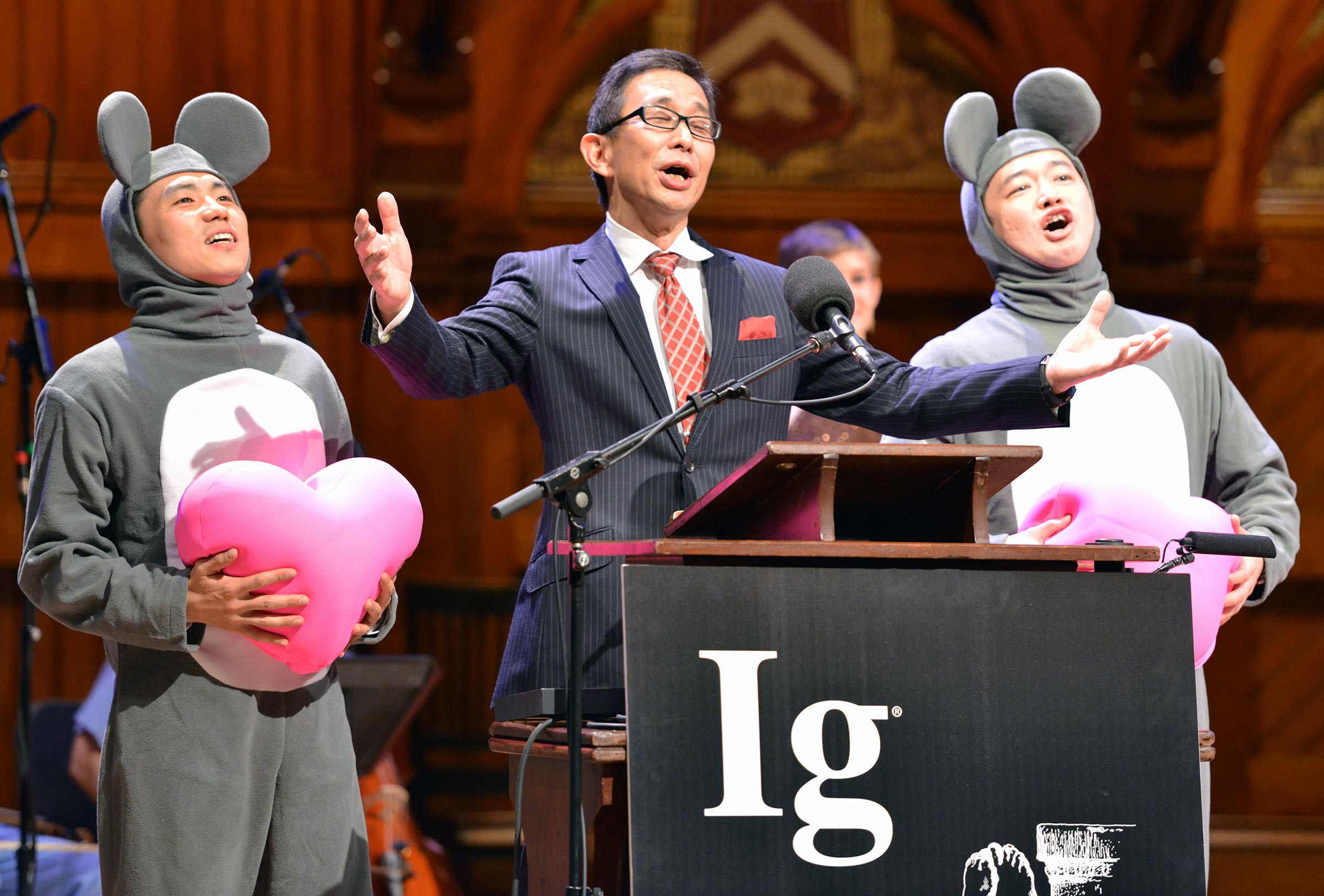"I noticed there was a suspicious-looking email in my in box with the subject 'Ig Nobel' and 'Congratulations.' At first I thought it was some kind of spam. I was going to disregard it, but then I recalled the famous Ig Nobel awards," relates Dr. Masanori Niimi of Teikyo University in Shukan Shincho (Oct. 31). "Still, I suspected it might be a phony message. Then, two days later, I received a mail from a fellow researcher urging me to 'accept the award for Japan's honor.' That's when I realized the mail was the real thing."
This year Japan was "honored" again with not one but two Ig Nobel awards. Niimi's team received the medicine prize for its work in "assessing the effect of listening to opera on heart-transplant patients who are mice." And Shinsuke Imai et al were awarded the chemistry prize for their paper discovering that "the biochemical process by which onions make people cry is even more complicated than scientists previously realized."
The 2013 awards marked the 14th and 15th garnered by Japanese since 1992. In the inaugural year, a team at the Shiseido Research Center in Yokohama received the medicine award for a study titled "Elucidation of Chemical Compounds Responsible for Foot Malodour," which concluded that people who think they have foot odor actually do have it, and those who don't think so do not.


















With your current subscription plan you can comment on stories. However, before writing your first comment, please create a display name in the Profile section of your subscriber account page.